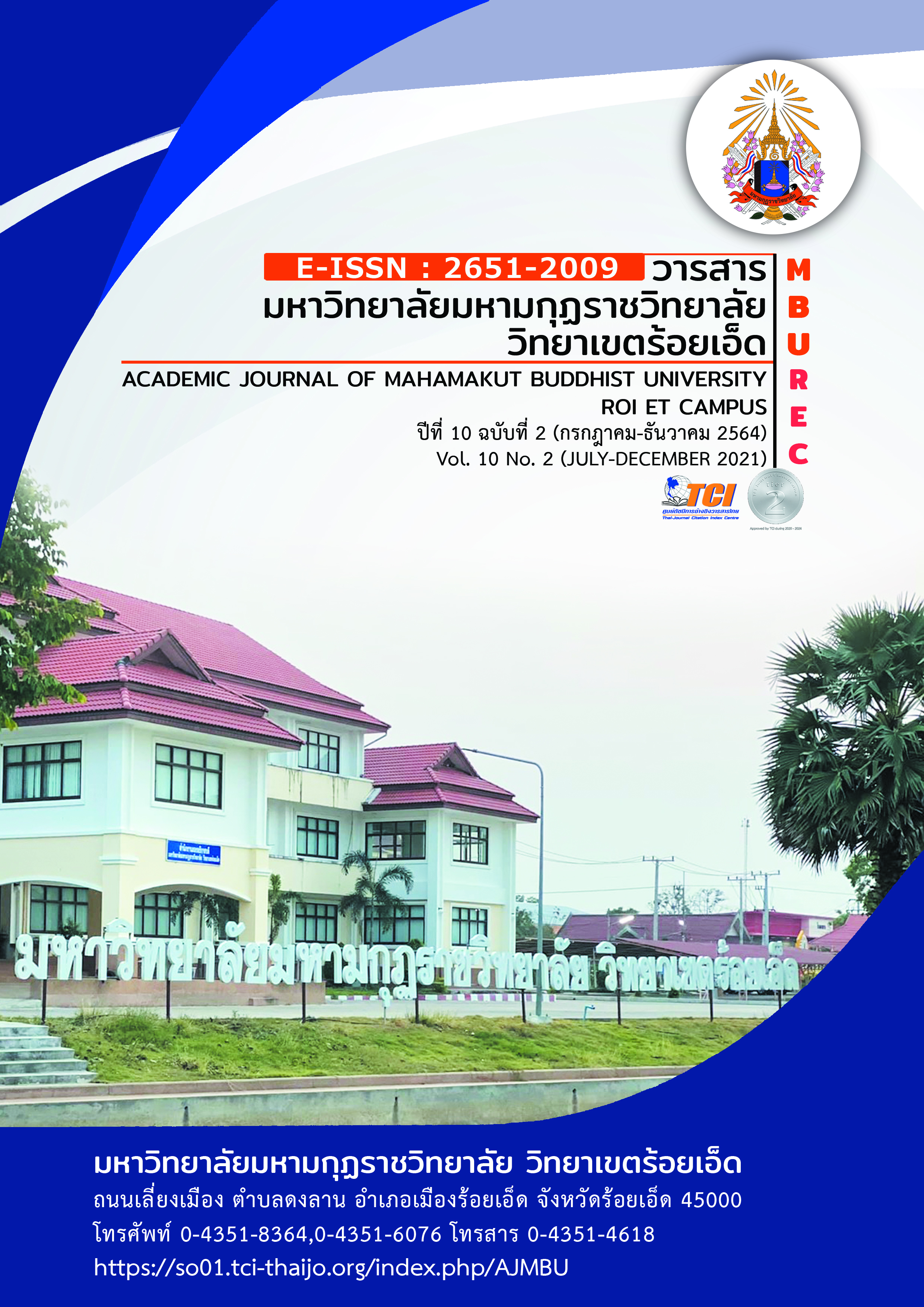Factors Affecting Net Asset Value per unit of Equity Funds with the Investment Policy in Foreign Countries
Main Article Content
Abstract
This research aimed to study factors that affect net asset value per unit of foreign investment equity funds. Which were Ages, Fees, Cash Flow, Exchange Rates and Indexes of the invested countries.The research adopted secondary data. The sample group in this study consisted of 45 equity funds invested in 3 overseas countries with the largest economic values in the world in 2019, including USA, China and Japan (source: International Monetary Fund (IMF)). The data were collected monthly from January 2016 to December 2020.
The research results showed that factors affecting net asset value of 9 mutual funds invested in the United States with statistical significance level of 0.05 in the same direction were Ages and Indexes. Meanwhile, Fees, Cash Flow and Exchange Rates have no correlation with the factors affecting the net asset value of the mutual funds invested in the US at confidence level of 0.05. Factors affecting net asset value of 22 mutual funds invested in China with statistical significance level of 0.05 in the same direction were Ages, Fees, Exchange Rates and Indexes. Meanwhile, Cash Flow has no correlation with the factors affecting the net asset value of the mutual funds invested in China at confidence level of 0.05. Factors affecting net asset value of 14 mutual funds invested in Japan with statistical significance level of 0.05 in the same direction were Ages, Cash Flow and Indexes. On the other hand, Exchange Rates have negative correlation. Meanwhile, Fees have no correlation with the factors affecting the net asset value of the mutual funds invested in Japan at confidence level of 0.05.
Article Details
References
ตลาดหลักทรัพย์แห่งประเทศไทย. (2564). ข้อมูลประเภทของกองทุนรวม. สืบค้นเมื่อ 27 เมษายน 2564. จาก https://www.set.or.th/education/th/begin/mutualfund_content02.pd
ธนาคารไทยพาณิชย์. (2563). รู้จักกองทุนรวมต่างประเทศ โอกาสการลงทุนในยุคเศรษฐกิจไทยหดตัว. สืบค้นเมื่อ 16 ธันวาคม 2563. จาก https://www.scb.co.th/th/personal-banking/ stories/foreign-investment-funds.html
ธนาคารแห่งประเทศไทย. (2563). เจาะลึกพฤติกรรมการลงทุนในหลักทรัพย์ต่างประเทศของคนไทย. สืบค้นเมื่อ 16 ธันวาคม 2563. จาก https://www.bot.or.th/Thai/Monetary Policy/ ArticleAndResearch/Pages/FAQ181.aspx
บริษัท มอร์นิ่งสตาร์รีเสิร์ช (ประเทศไทย) จำกัด. (2564). ข้อมูลกองทุนรวมต่างประเทศ (ไม่รวม Term Fund). สืบค้นเมื่อ 19 เมษายน 2564. จาก https://www.morningstarthailand. com/mobile/Article.aspx?Site=th&
ปกรณ์ ติรกาญจน์. (2558). การวิเคราะห์ผลตอบแทนและความผันผวนของกองทุนรวมหุ้นระยะยาวในประเทศไทย. กรุงเทพมหานคร : มหาวิทยาลัยธรรมศาสตร์.
ผิวมะลิ วงษ์ทอง. (2560). ปัจจัยที่มีผลกระทบต่อมูลค่าทรัพย์สินสุทธิต่อหน่วยของกองทุนรวมที่มีนโยบายลงทุนในประเทศจีน. กรุงเทพมหานคร : มหาวิทยาลัยกรุงเทพ.
ออนไลน์นิวส์ไทม์. (2564). จัดอันดับประเทศที่มีขนาดเศรษฐกิจที่ใหญ่ที่สุดในโลก ปี 2019. สืบค้นเมื่อ 19 เมษายน 2564. จาก https://www.onlinenewstime.com


